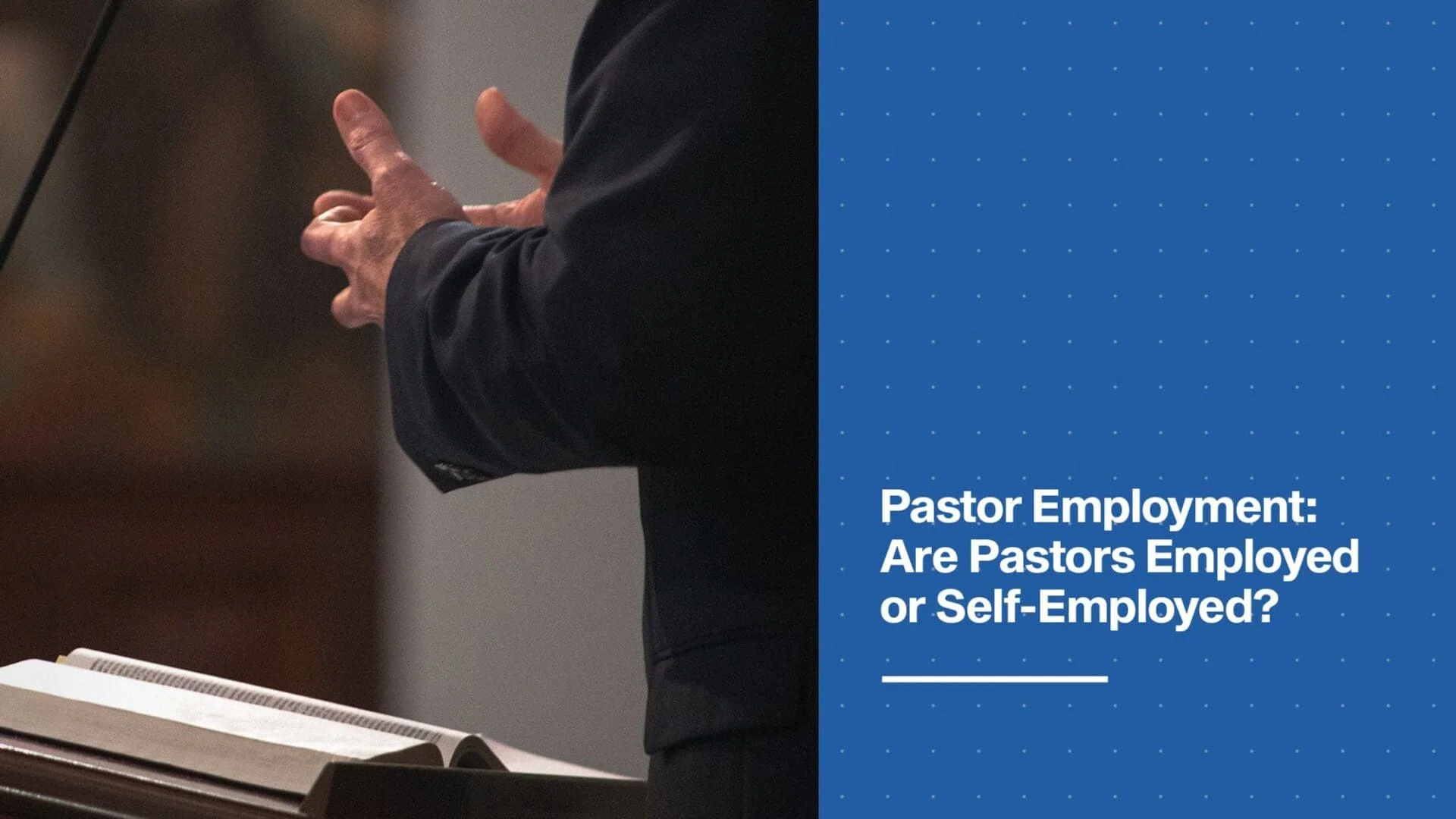
Church payroll is one of the most complicated areas of the church accounting process — and figuring out pastoral payroll responsibilities can be the trickiest part. Is your pastor a full-time employee? Are they a self-employed contractor?
The answer might be surprising, and it’s definitely not easy. Let’s dig into the status of your preacher’s status as a worker at your church and how you should handle pastor employment, especially when it comes time for tax season.
Let’s start with the obvious one. In most cases, Pastors are considered employees by their churches. If a church is big enough to afford to pay employees in the first place, often the first hire is a pastor.
It’s hard to argue with the full-time status of a pastor, too. Contractors are technically allowed to execute their jobs in whatever way they see fit as long as they deliver an end product that is acceptable. However, if a church has the right to control what a pastor does and how they do it, it doesn’t allow them to operate as a contractor and automatically qualifies them as an employee.
It’s worth pointing out that the IRS clarifies that there are specific scenarios where a pastor is not considered a common-law employee. A traveling evangelist, for example, is a clear-cut independent contractor.
So far, so good. Where things get tricky is when tax season rolls around…
A pastor may function in the role of a full-time employee for a church. However, when it comes time to file their taxes, they receive dual tax status. The term is just like it sounds. It means they pay their taxes two separate ways for various parts of their income. This is a delegated tax status and not something pastors can opt in or out of based on their preferences.
As far as general federal income taxes are concerned, a pastor is a common-law employee. However, pastors are considered self-employed in multiple areas of their income.
The IRS makes it clear that when considering SECA taxes (Social Security and Medicare taxes), a pastor is a self-employed individual. The agency specifically states:
“The services you perform in the exercise of your ministry are generally covered by Social Security and Medicare under the self-employment tax system, regardless of your status under the common law. This means that your salary on Form W-2, Wage and Tax Statement, the net profit on Schedule C, and your housing allowance less pertinent deductible expenses are subject to self-employment tax on Schedule SE (Form 1040), Self-Employment Tax.”
This means pastors have to pay a double portion of those taxes (15.3% total in 2024) — half for for themselves and half for their employers (i.e., themselves, since they’re considered self-employed).
Fees collected for non-salaried work, such as performing marriages, funerals, or baptisms, also fall under the self-employment tax requirements.
As a self-employed individual, a pastor is responsible for paying their own quarterly taxes on self-employed income. A church cannot pay their Social Security taxes, as that would be considered a taxable fringe benefit due to their tax status. When that is the case, the pastor would have to pay another round of taxes on the income anyway.
Pastors may have to pay taxes in a multifaceted and complicated manner, but there are some positive elements. For instance, some churches offer SECA or Social Security allowances as a reportable bump in salary to offset the cost of paying SECA taxes.
Another major consideration is the fact that a pastor’s housing allowance doesn’t typically fall under their taxable income. The IRS explains:
“A licensed, commissioned, or ordained minister who performs ministerial services as an employee may be able to exclude from gross income the fair rental value of a home provided as part of compensation (a parsonage) or a housing allowance provided as compensation if it is used to rent or otherwise provide a home.”
This provides a helpful leg up when it comes to a pastor’s reportable income. The parsonage example even includes utilities, and a housing allowance can apply to rent, mortgage interest, and “other expenses directly relating to providing a home.”
Once again, there are clarifications to consider. For example, the agency points out that the amount a pastor excludes cannot be more than what is considered reasonable compensation for their services. (I.e., you can’t write off the majority of your salary as a “housing allowance.”)
Pastors are also exempt from income tax withholding. They still have to pay income taxes, but their churches aren’t required to hold back those taxes during the payroll process.
On the flip side, pastors can create voluntary tax withholding agreements with their churches. This can make it easier to manage tax considerations and responsibilities over time.
In most cases, a pastor is classified as an employee and receives a W2. If they have additional self-employed income not reported on their W2, they can declare it via a Schedule C.
However, the specific requirements can vary from one situation to the next. It’s always a good idea to talk to an accounting professional to ensure that you’re handling your pastor’s payroll and tax accounting activity correctly.
At Chaney & Associates, we specialize in meeting ministry accounting needs. Reach out to our team, and we can help you sort out your pastor’s employment status, address any dual income tax status questions, and ensure that your ministry’s tax season is as smooth as possible.
